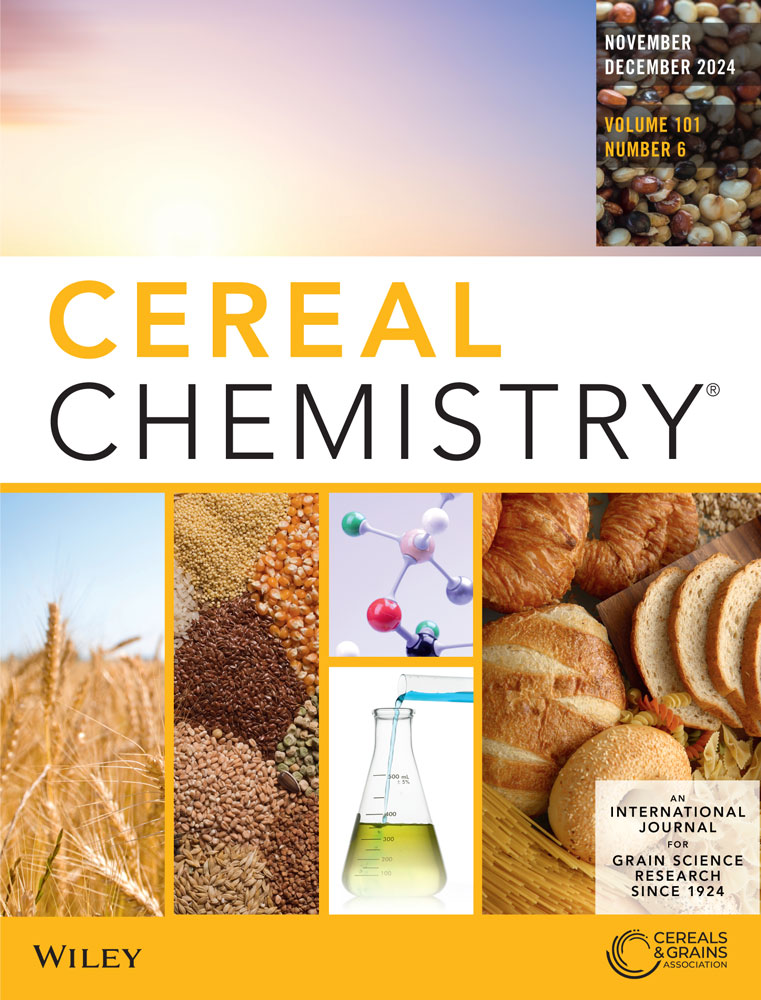Physicochemical, functional, pasting, and amino acid compositions of milled rice, and extrusion behavior of milled rice from basmati and nonbasmati varieties
Abstract
Background and Objectives
This study was carried out to evaluate the difference in physiochemical, functional, cooking, textural, and pasting properties along with amino acid profile of nine basmati and nine nonbasmati rice varieties. Principle component statistical analysis was done to analyse the relationships among different properties of these varieties. Some verities containing high amylose content and good amino acid profile were selected for further development of extruded products (rice extrudates).
Findings
Variations were observed in the physicochemical and functional properties of basmati and nonbasmati varieties. Low amylose rice varieties had higher cooking time, firmness, pasting temperature, and lower pasting viscosity. Selected high amylose-containing varieties were showed higher bulk density but lower expansion ratio and hardness of rice extrudates. Result of this study will help industry for selection of rice for development of gluten-free rice-based breakfast cereals, puffed rice snacks, and so forth.
Conclusions
Among all varieties, PR122, PR128, PB3, PB4, and PB1121 exhibited higher levels of ash content, amylose content and protein content. Consequently, these varieties demonstrated longer CT, greater GSL, higher cooked grain firmness, and higher pasting PT, although they exhibited lower PV. PB1637, PB1509, PB1121, and PB4 displayed higher levels of essential AAs and sweet taste attributing amino acids, such as serine, glycine, and alanine, when compared to the other varieties. The results showed that rice containing higher amylose had lower expansion ratio of the extrudates, while higher bulk density and hardness. PR126 and CSR30 had the highest expansion ratio among the varieties that have been evaluated. Based on these results, PR126 and CSR30 could be used to make gluten-free rice-based breakfast cereals, rice snacks, and instant products.
Significance and Novelty
Physiochemical, functional, cooking, texture, pasting properties as well as amino acid profile were evaluated of different basmati and non-basmati Indian (Punjab) varieties. Principle component (Relationship) analysis between various properties and different rice varieties was carried out. Extrusion is the most versatile processing technology used in the food industry to develop the product having better functional and sensory characteristics. The findings highlight the necessity of taking amylose content and amino acid composition into account when selecting rice types for preparation of extruded rice food.

 求助内容:
求助内容: 应助结果提醒方式:
应助结果提醒方式:


